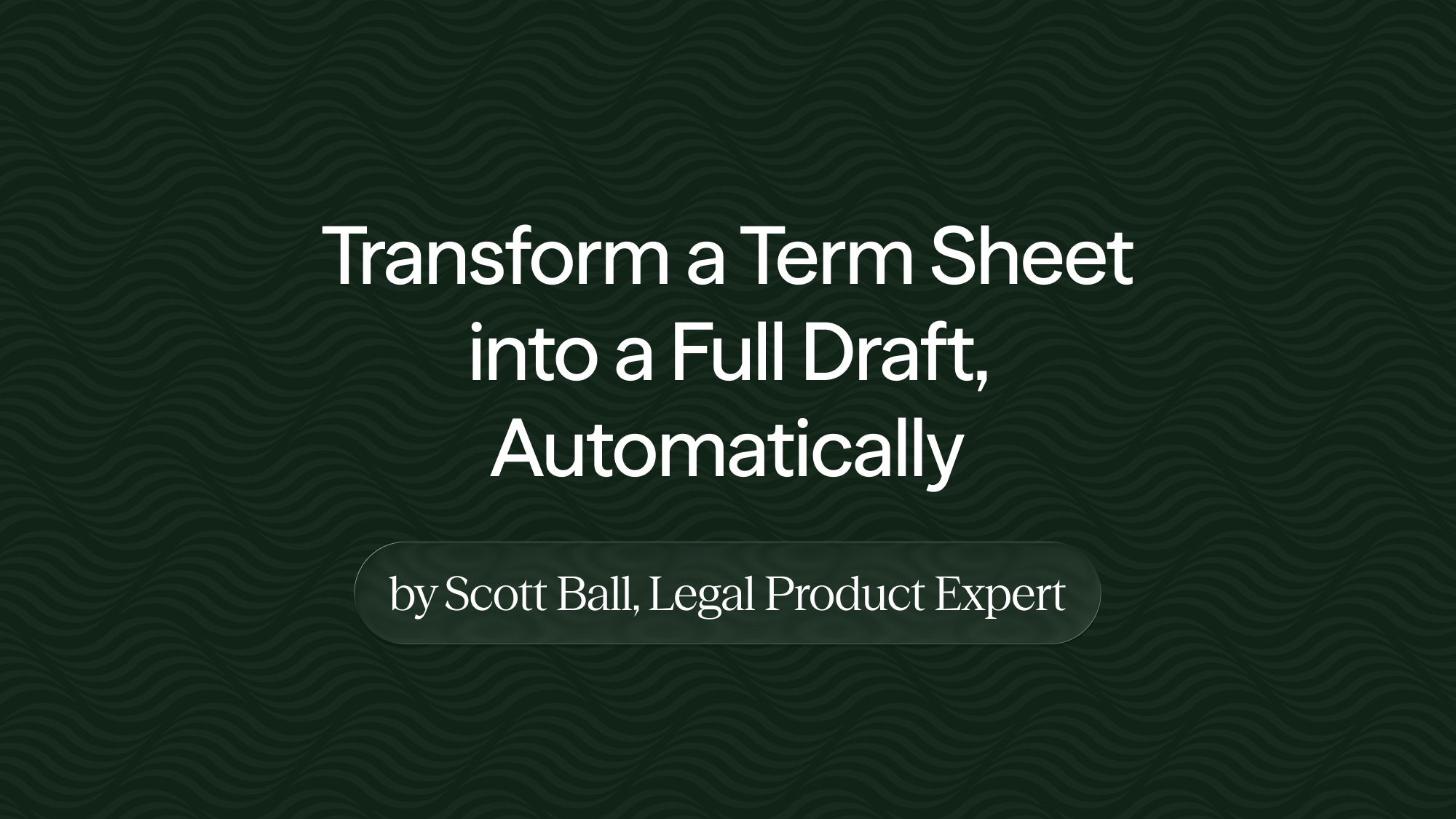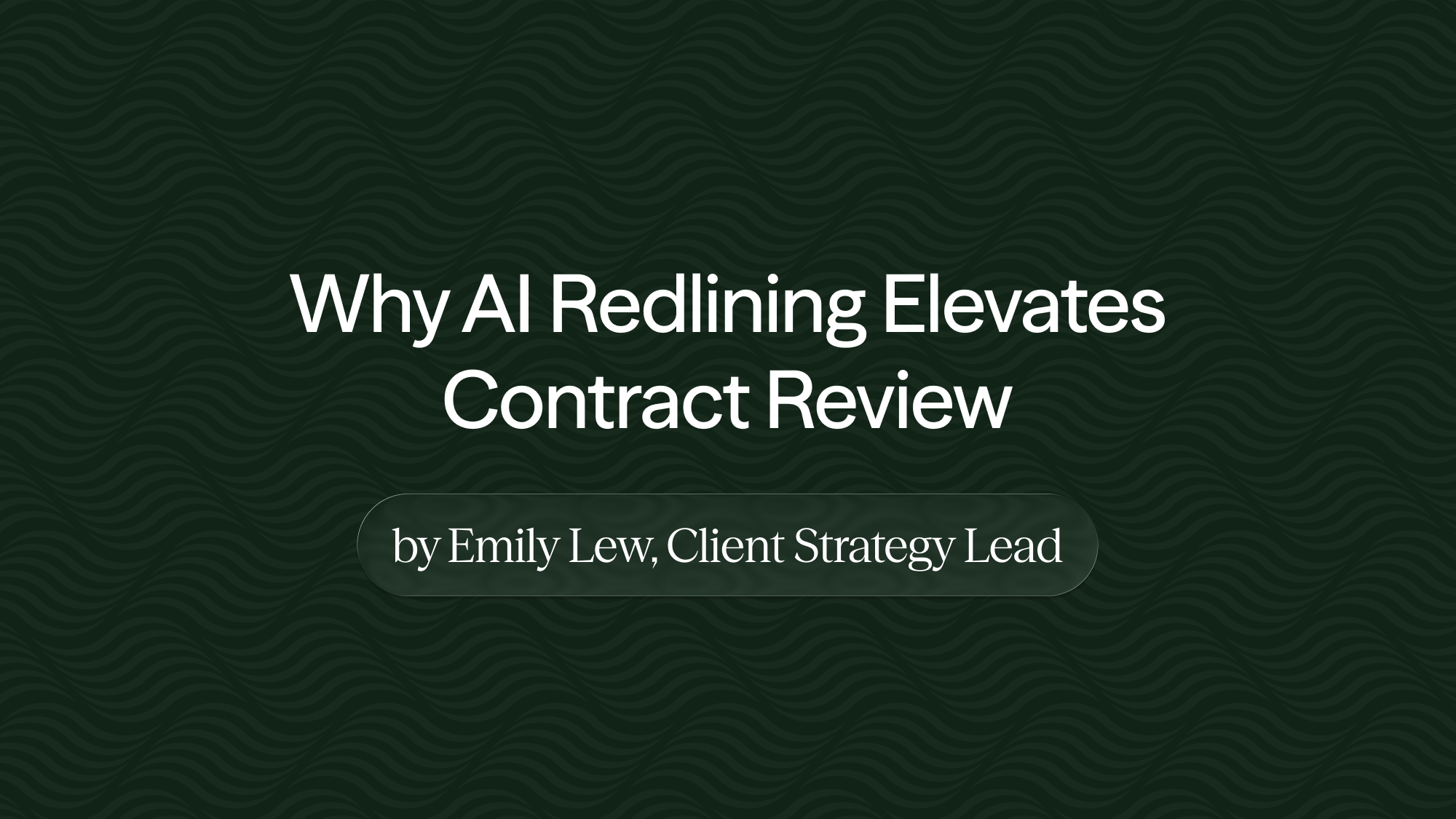The Law Firm's Guide to Talking to Clients About AI
How to have confident, clear conversations about AI adoption—and why your clients will thank you for it.
Why This Conversation Matters Now
Your clients are asking about AI.
Some are excited. Some are skeptical. Most are confused about what it actually means for their legal work. And if you're not proactively explaining how AI is changing your service delivery, your clients are filling in the blanks themselves—often incorrectly.
The firms winning this conversation aren't the ones with the flashiest tech stack. They're the ones who can clearly explain: "Here's what we're using AI for, here's what it means for you, and here's why it makes us better at serving your needs."
This guide will help you have that conversation with confidence.
What Clients Actually Care About (Spoiler: It's Not "AI")
Before we get into talk tracks, let's be clear about what matters to your clients:
Clients don't care about AI. They care about:
- Speed - Can you move faster when deals are time-sensitive?
- Consistency - Are you applying lessons from past deals, or reinventing the wheel?
- Cost efficiency - Are you spending their budget wisely?
- Quality - Are you catching issues they'd never catch themselves?
- Strategic value - Are you spending time on high-value advice or administrative tasks?
AI is just the mechanism. These outcomes are what you're selling.
The Client Conversation Framework
1. Start with the problem, not the technology
❌ Don't say: "We've implemented an AI contract drafting platform."
✅ Do say: “You know how frustrating it is to see billable time go toward administrative work instead of strategic advice? We’ve invested in technology that automates the manual parts of drafting, so your budget goes toward what actually drives results.”
Why this works: It keeps the focus on the client’s perspective (value for money, efficiency), while still implying the behind-the-scenes innovation that makes that possible.
2. Be specific about what AI does (and doesn't do)
Clients have watched too many Terminator movies. They believe AI is either a miracle or a threat. You need to demystify it.
Clear explanations that work:
For contract drafting/review: "We use AI to instantly search through thousands of our past deals to find how we've handled similar provisions before. Instead of a junior associate spending hours digging through old contracts, our technology instantly surfaces the best examples. A senior lawyer still reviews everything and makes the final call—we've just eliminated the tedious search work."
For market intelligence: "When you're negotiating a provision, you want to know what's market standard. We use AI to analyze comparable deals—both our own precedent and public filings—so we can tell you with confidence: 'Here's what 80% of companies in your industry are accepting.' You get data-backed negotiating positions, not guesswork."
For consistency: "We use AI to ensure we're applying your company's preferred positions consistently across every deal. The technology flags when a contract deviates from your playbook, so nothing slips through the cracks—even when you're working with different lawyers on our team."
3. Address the "so you're billing me less?" question directly
This is the elephant in the room. Handle it head-on.
The honest answer: "Yes, certain tasks take less time now. A first draft that used to take 5 hours might take 2. But here's what that means for you: those 3 hours aren't disappearing—they're being reallocated to higher-value work. We're spending more time on strategic negotiation advice, risk assessment, and helping you think through deal structure. You're getting better legal counsel, not just faster documents."
Follow up with specifics: "Last quarter, we reduced time spent on document assembly by 40%. That time was spent on deeper due diligence and more strategic client counseling. Our clients are closing deals faster and with better outcomes."
4. Quantify the impact (clients love numbers)
Don't just say "we're faster." Show them what faster means.
Sample metrics you can share:
📊 Time savings:
- "First draft turnaround: reduced from X days to same-day"
- "Precedent research: reduced from X hours to X minutes"
- "Contract review markup: reduced from 8 hours to 3 hours"
📊 Quality improvements:
- "95% consistency rate in applying client-preferred positions across deals"
- "Issues flagged increased 30% due to AI-assisted review"
- "Zero missed provisions in compliance checks (previously 2-3% error rate)"
📊 Strategic value:
- "Senior lawyer time on strategic advice increased 35%"
- "Client response time for questions reduced by 50%"
- "Ability to handle time-sensitive deals increased dramatically"
Pro tip: Track these metrics for your own firm, then share them in client updates. Clients want proof, not promises.
Common Client Questions (And How to Answer Them)
"Is AI making decisions about my legal work?"
Answer: "No. AI is a research and drafting assistant, not a decision-maker. Think of it like an incredibly fast paralegal that can instantly search through millions of documents. A human lawyer—someone who understands your business and your risk tolerance—reviews everything and makes every strategic call. The AI just eliminates the tedious parts so we can focus on judgment and strategy."
"Is my confidential information being used to train AI models?"
Answer: "Absolutely not. We utilize AI tools specifically designed for law firms, featuring enterprise-grade security and zero data retention policies. Your information stays within our secure systems and is never used to train any AI models. We're [SOC 2 certified / ISO 27001 certified / other relevant certifications], and our AI vendors meet the same standards."
"Will this make legal services cheaper?"
Answer: "It makes legal services better. You're getting faster turnaround, more consistent quality, and more strategic attention from senior lawyers. Some firms are passing savings along to clients through alternative fee arrangements. Others are reinvesting the efficiency gains into deeper client service. We're happy to discuss what makes sense for your engagement."
"How do I know you're not cutting corners?"
Answer: "We're not. If anything, we're more thorough now. AI helps us catch things humans might miss—like inconsistent definitions across a 200-page agreement, or a provision that deviates from your standard positions. The quality control is stronger, not weaker. We're also able to provide more comprehensive market intelligence because we can analyze thousands of comparable deals, not just the handful a human could manually review."
"What if your AI makes a mistake?"
Answer: "An experienced lawyer reviews every AI output before it reaches you. AI is a tool in the hands of a lawyer, not a replacement for legal judgment. If there's ever an error, it would be a human error in review, which is no different than pre-AI. The difference is, AI actually helps us catch more errors because it can spot inconsistencies and potential issues across huge documents that a human might miss."
Talk Tracks for Different Client Scenarios
Scenario 1: Proactive client update (recommended approach)
Email or meeting opening:
"I wanted to give you a quick update on some investments we've made in our practice that directly benefit your work. We've implemented AI-powered contract intelligence tools that are enabling us to work faster and more thoroughly.
Here's what that means for you: [specific benefit, e.g., 'when you send us a draft to review, we can turn it around same-day instead of 2-3 days']. We're really excited about this and happy to walk you through how it works if you're interested."
Scenario 2: Client asks about your AI use
Client question: "I've been reading about AI in legal—are you using and how?"
"We are, and it's made a real difference. We're using AI specifically for [contract drafting/review/market intelligence/precedent research]. The most significant impact you'll see is [faster turnaround / more consistent quality / better market intelligence].
The technology enables us to handle time-consuming research and document review work much faster, allowing our senior lawyers to devote more time to strategic advice and complex problem-solving. Would you like me to show you a specific example from your recent work?"
Scenario 3: Pitching to a new client
In a new business pitch:
"One thing that sets us apart is how we leverage technology to deliver better client service. We utilize AI to access our firm's institutional knowledge instantly—every deal we've done, every negotiation strategy that has worked, and every pitfall we've encountered.
That means when we're working on your deals, you're getting the benefit of our 30 years of experience applied in real-time, not just the knowledge of whoever happens to be on your team. It makes us faster, more consistent, and frankly, better lawyers."
Making It Concrete: Show, Don't Just Tell
The most effective client conversations include specific examples. Here's how:
Before & After Comparisons:
"Let me show you the difference. On your last acquisition, it took us 8 hours to compile market intelligence on indemnity caps for similar deals. On your next deal, we'll be able to perform the same analysis in approximately 15 minutes. That's 7+ hours we can spend helping you negotiate the business terms instead."
Real Examples from Their Work:
"Remember that supply agreement we drafted last month? Normally, pulling together the right provisions from past deals would take a junior associate most of a day. With our AI tools, we surfaced the 10 most relevant precedents in about 5 minutes. Then our senior associate spent the next 3 hours customizing them for your specific situation. Same quality, much faster turnaround."
The ROI Conversation
Some clients will want hard numbers. Be ready.
Examples of Quantitative ROI for Clients
Note: Fill in the blanks with your numbers
Time to completion:
- Ex. "Average deal timeline reduced by XX%"
- "First draft delivery: XX days faster"
- "Response time on revisions: cut in half"
Cost efficiency:
- "Junior associate hours reduced by XX% on document prep"
- "Senior lawyer time reallocated to strategic advice (higher value per hour)"
- "Ability to handle rush deals without premium rates"
Risk reduction:
- "Consistency errors reduced by XX%"
- "Provisions missed in review: nearly eliminated"
- "Better market intelligence = stronger negotiating positions"
Qualitative ROI for Clients
Better outcomes:
- "More time for strategic negotiation advice"
- "Stronger positions backed by market data"
- "Proactive issue spotting before problems arise"
Better experience:
- "Faster response times to your questions"
- "More consistent service across different lawyers on our team"
- "Less 'we need to research this'—more immediate answers"
Competitive advantage:
- "Speed to close deals when timing matters"
- "Sophistication in deal structure and risk allocation"
- "Access to institutional knowledge, even with junior team members"
Building Trust Through Transparency
The firms clients trust most are the ones that are transparent about their AI use.
Do this:
✅ Proactively explain what you're using AI for
✅ Be clear about lawyer oversight and review
✅ Share specific benefits they'll experience
✅ Invite questions and concerns
✅ Update them when you implement new capabilities
Don't do this:
❌ Hide or downplay your AI use
❌ Overstate AI capabilities ("it can do anything!")
❌ Make it sound like lawyers are being replaced
❌ Use jargon or technical language that confuses clients
❌ Implement AI without ever mentioning it to clients
The Bottom Line
Your clients aren't afraid of AI. They're afraid of:
- Lower quality work
- Loss of human judgment
- Security breaches
- Paying the same for less lawyer time
Your job is to show them that AI actually addresses these concerns:
- Quality improves (more consistent, more thorough)
- Human judgment is enhanced (more time for strategy)
- Security is enterprise-grade (we chose vendors carefully)
- Value increases (you get more strategic attention, faster turnaround)
The firms winning this conversation are the ones treating AI as a competitive advantage worth explaining, not a secret worth hiding.
Start having these conversations now. Your clients will respect your transparency—and appreciate the better service you're delivering.




